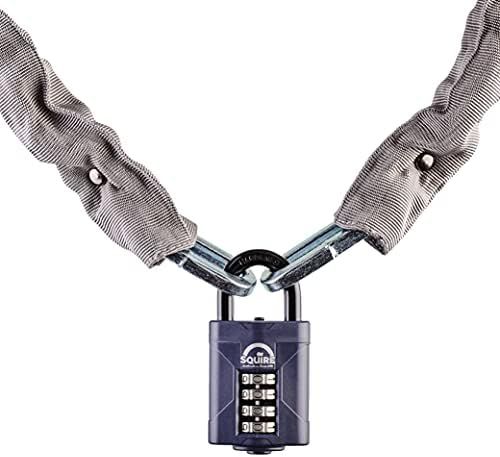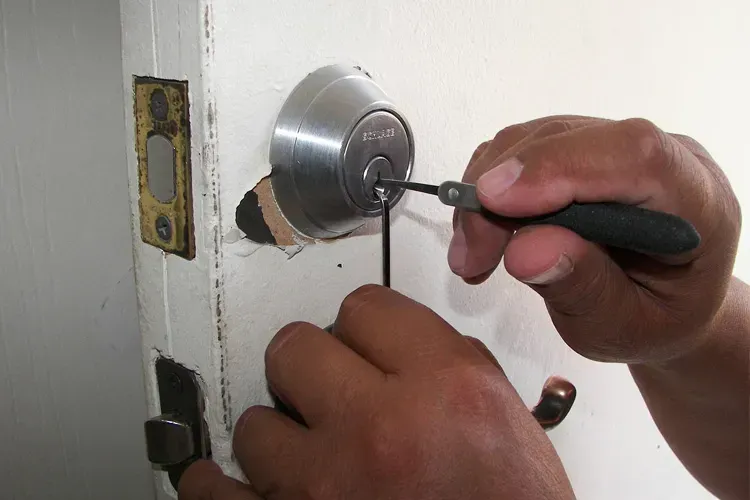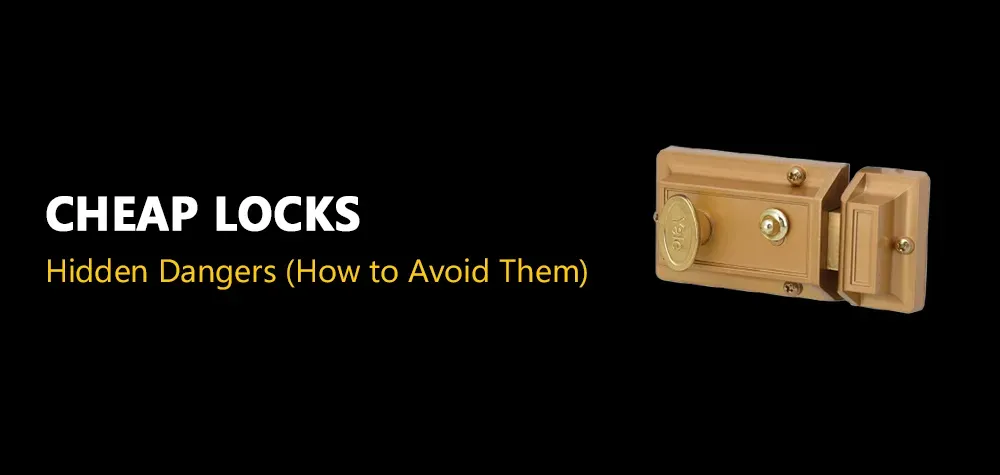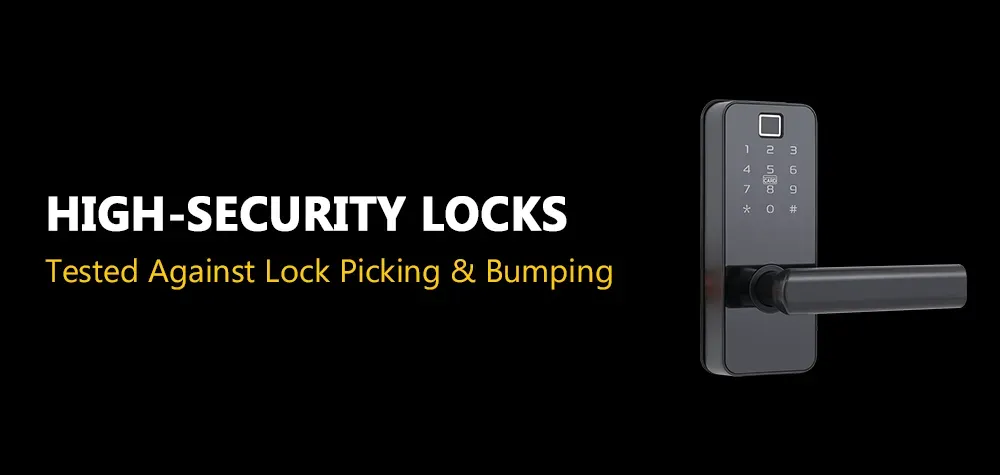By Youmna Rehman
•
April 15, 2025
Locking yourself out of your car or house can be frustrating. But what's even worse? Paying for locksmith services, only to find out a few weeks later that the lock malfunctions again—and you’re left to deal with it all over. That’s when the question becomes painfully relevant: Do locksmith services come with a warranty? The short answer is—yes, they often do. But as with anything involving your security and hard-earned money, the details matter. A warranty can be the fine line between peace of mind and a pricey second repair. So, let’s break it all down. What kind of warranties should you expect? What should you look out for? And how can you protect yourself from poor-quality service? This article will walk you through it all—step by step—with real-world context, expert advice, and some seriously helpful tips to ensure you don’t get locked into a bad locksmith experience. Why Locksmiths Should Offer Security Audits (And How to Do It) What Exactly Is a Locksmith Warranty? A locksmith warranty is a written or verbal assurance that the services provided—whether it's installing a new lock, rekeying an existing one, or unlocking a door—will function correctly for a specific period of time. If anything goes wrong within that time frame due to workmanship or faulty materials, the locksmith agrees to fix the problem at no additional cost. Sounds simple enough, right? But not all warranties are created equal. Some are backed by the manufacturer of the locks, while others are offered directly by the locksmith company. Some cover only the parts, while others include labor too. And some may have hidden terms that don’t show up until it’s too late. Understanding the kind of warranty you're being offered can save you stress, confusion, and repeat costs down the road. Why Locksmith Warranties Matter More Than You Think Think of it this way: A lock is your first defense against the outside world. Whether it’s your home, car, or office, your safety literally depends on it. So if something goes wrong with that lock after a professional service, it’s not just inconvenient—it’s a risk. Warranties aren’t just about saving money. They're about ensuring the job was done right the first time. A locksmith willing to offer a strong warranty is usually one who’s confident in their skill, quality of products, and customer service. It’s also a filter. If a locksmith refuses to talk about warranties, that’s a red flag you shouldn’t ignore. Common Scenarios That Highlight the Importance of a Warranty Imagine you just moved into a new home and hired a locksmith to install brand-new locks throughout the property. Everything seems fine until three weeks later, your front door lock jams. It’s the weekend, and you can’t get in. If the locksmith provided a warranty, you simply call them up and have it fixed—no extra cost, no drama. But if there’s no warranty? You’re now footing the bill for a repair that shouldn’t have been necessary so soon. Or let’s say you lost your car keys, and a locksmith cuts and programs a new one. You drive away happy, but within a month, the key stops working. A reputable locksmith will replace or reprogram it under warranty. One without a warranty? Well, let’s just say your wallet’s in trouble—again. These aren’t just hypothetical stories. They happen every day, and a warranty makes all the difference. Step-by-Step: How to Check for Locksmith Warranty Coverage Here’s a breakdown of what you should do when hiring a locksmith and ensuring you’re covered properly: Step 1: Ask Directly Before Any Work Begins Before you agree to anything—before the locksmith touches your door—ask about the warranty. Don’t assume it’s included. Get clear on what is covered, how long it lasts, and what voids it. A professional locksmith won’t hesitate to explain. Step 2: Request Written Confirmation It’s not enough to get a verbal “yes.” Ask for the warranty in writing—whether in an invoice, email, or even a section of the contract. Written proof protects you if there’s ever a disagreement down the line. Step 3: Understand the Coverage Some warranties cover only parts, while others include labor as well. Make sure you know the difference. For example, if your lock malfunctions but the labor isn’t covered, you’ll still pay for the time it takes to fix it—even if the part is free. Step 4: Know the Exclusions Warranties usually don’t cover damage caused by misuse, natural disasters, or third-party tampering. Ask about any specific exclusions to avoid surprises later. Step 5: Keep the Documentation Safe After the service is completed, keep your invoice and warranty details in a safe place. If anything goes wrong, you’ll want that paperwork ready to go. Risks Involved with No Warranty or Poor Coverage Let’s be blunt: skipping a warranty is risky business. You might save a few bucks upfront, but you're gambling with your security and your finances. Without warranty coverage, any issues—even if they result from the locksmith’s mistake—fall on your shoulders. That means more money out of your pocket and more time wasted calling someone new to fix what should have been done right the first time. Even worse, a faulty lock can become a security loophole. If a deadbolt isn’t engaging properly or a digital keypad fails, you could be leaving your home vulnerable to intruders without even realizing it. A locksmith without a warranty is a locksmith who may not stand by their work. And that’s not someone you want securing your property. Expert Recommendations: What Locksmiths Say About Warranties Professional locksmiths agree on one thing—warranties are a mark of quality. If a locksmith is confident in their service and tools, they should have no problem offering reasonable coverage. Most reputable locksmiths provide at least 30 to 90 days of warranty for labor and parts. Many even offer up to a year for higher-end installations like smart locks or commercial-grade security systems. They’ll also recommend choosing name-brand locks, which come with manufacturer warranties you can combine with the locksmith’s service guarantee. This way, you’re double-covered. The best locksmiths will go a step further—educating clients on maintenance tips, troubleshooting advice, and how to prevent common lock problems. Why? Because they want you to call them again for the right reasons, not because a job fell apart. Preventive Measures: How to Keep Your Locks Working Smoothly A warranty is a safety net, but prevention is always better. Here are some expert-backed tips to extend your lock’s life: Keep locks clean and free of dust or moisture. Dirt buildup is a common reason for jamming. Avoid using excessive force on keys or handles. If it doesn’t turn smoothly, something’s wrong. Periodically test your locks and keys—especially electronic ones—to catch small issues early. Don’t ignore unusual sounds or resistance. These are signs your lock needs attention before it fails completely. Also, maintain a relationship with a trusted locksmith. Annual checkups on locks—especially for commercial or high-security properties—can save you from surprise breakdowns. Conclusion: Don't Just Get Locked In—Get Covered When it comes to locksmith services, a warranty isn't just a bonus—it's a basic necessity. It tells you that the professional takes pride in their work and that your safety, convenience, and money are being respected. Whether you're getting a lock rekeyed, a new smart system installed, or an emergency unlock at 2 a.m., always ask: Does this come with a warranty? And if the answer isn’t a confident, documented yes—keep looking. Because in the world of security, peace of mind isn’t optional. It’s everything.






